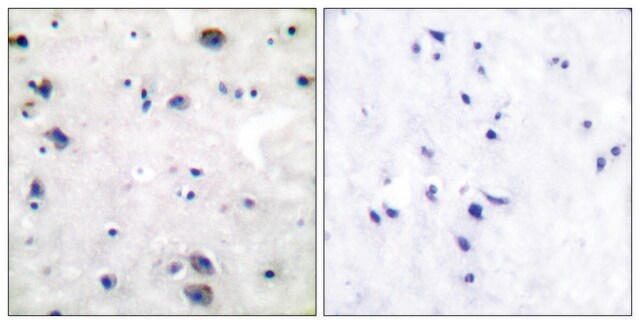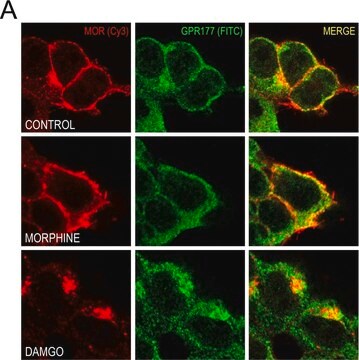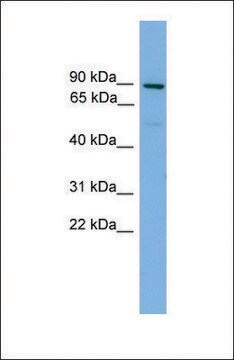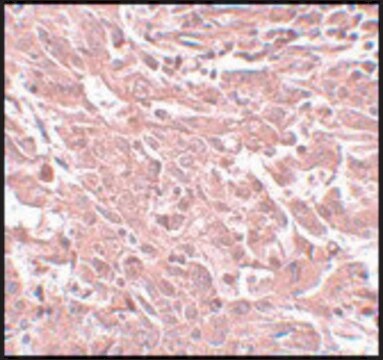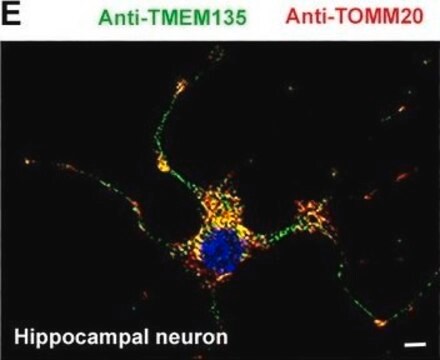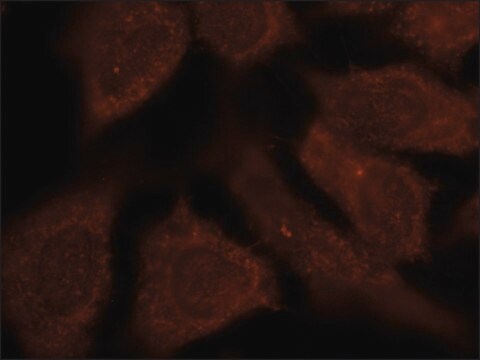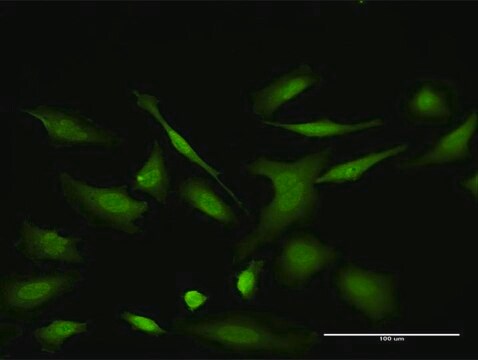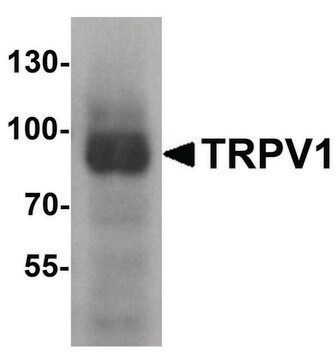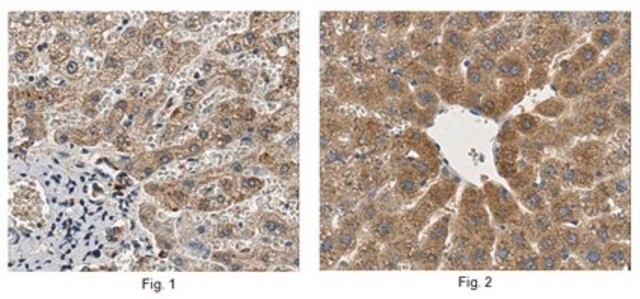おすすめの製品
由来生物
rabbit
品質水準
結合体
unconjugated
抗体製品の状態
affinity isolated antibody
抗体製品タイプ
primary antibodies
クローン
polyclonal
フォーム
buffered aqueous solution
分子量
~80 kDa
化学種の反応性
mouse, rat
濃度
1 mg/mL
テクニック
western blot: 1:500-1:1000
アイソタイプ
IgG
免疫原配列
(H-P-S-T-A)
NCBIアクセッション番号
UniProtアクセッション番号
輸送温度
wet ice
保管温度
−20°C
ターゲットの翻訳後修飾
unmodified
遺伝子情報
human ... OPRM1(4988)
詳細
The gene OPRM1 (opioid receptor μ 1) is mapped to human chromosome 6q24-q25. The gene spans a length of 200kb and contains 11 exons that yield 17 splice variants.
免疫原
Peptide sequence around aa. 373-377 (H-P-S-T-A), according to the protein OPRM1.
アプリケーション
Anti-OPRM1 (Ab-375) antibody produced in rabbit has been used in Western blotting.
生物化学的/生理学的作用
The gene OPRM1 (opioid receptor μ 1) encodes a μ opioid receptor that functions in pain perception and addiction to drugs of abuse, such as cocaine, nicotine and alcohol. It serves as a target for opioid drugs, such as morphine, methadone and heroin and opioid peptides (like β - endorphin and endomorphins) and mediates their effects. Single nucleotide polymorphism in the OPRM1 gene is associated with an inclination to drug addiction and lesser response to painful stimuli.
特徴および利点
Evaluate our antibodies with complete peace of mind. If the antibody does not perform in your application, we will issue a full credit or replacement antibody. Learn more.
ターゲットの説明
Inhibits neurotransmitter release by reducing calcium ion currents and increasing potassium ion conductance. Receptor for beta-endorphin.
物理的形状
PBS(0.02% アジ化ナトリウム、50% グリセロール含有)
免責事項
Unless otherwise stated in our catalog or other company documentation accompanying the product(s), our products are intended for research use only and are not to be used for any other purpose, which includes but is not limited to, unauthorized commercial uses, in vitro diagnostic uses, ex vivo or in vivo therapeutic uses or any type of consumption or application to humans or animals.
適切な製品が見つかりませんか。
製品選択ツール.をお試しください
保管分類コード
10 - Combustible liquids
WGK
WGK 1
引火点(°F)
Not applicable
引火点(℃)
Not applicable
適用法令
試験研究用途を考慮した関連法令を主に挙げております。化学物質以外については、一部の情報のみ提供しています。 製品を安全かつ合法的に使用することは、使用者の義務です。最新情報により修正される場合があります。WEBの反映には時間を要することがあるため、適宜SDSをご参照ください。
Jan Code
SAB4300555-100UG:
最新バージョンのいずれかを選択してください:
Association of time-dependent changes in μ opioid receptor mRNA, but not BDNF, TrkB, or MeCP2 mRNA and protein expression in the rat nucleus accumbens with incubation of heroin craving.
Theberge FR, et al.
Psychopharmacology (Psychopharmacologia), 224(4), 559-571 (2012)
Ying Zhang et al.
The Journal of biological chemistry, 280(38), 32618-32624 (2005-07-28)
As a primary target for opioid drugs and peptides, the mu opioid receptor (OPRM1) plays a key role in pain perception and addiction. Genetic variants of OPRM1 have been implicated in predisposition to drug addiction, in particular the single nucleotide
Raymond F Anton et al.
Archives of general psychiatry, 65(2), 135-144 (2008-02-06)
Naltrexone hydrochloride treatment for alcohol dependence works for some individuals but not for everyone. Asn40Asp, a functional polymorphism of the mu-opioid receptor gene (OPRM1), might predict naltrexone response. To evaluate whether individuals with alcoholism who are heterozygous (Asp40/Asn40) or homozygous
Shinya Kasai et al.
Pharmacogenomics, 12(9), 1305-1320 (2011-09-17)
The µ-opioid receptor is a primary target for clinically important opioid analgesics, including morphine, fentanyl and methadone. Many genetic variations have been identified in the human µ-opioid receptor MOP gene (OPRM1), and their implications have been reported in the effects
Jörn Lötsch et al.
Anesthesiology, 97(4), 814-819 (2002-10-03)
Some, but not all, patients with renal dysfunction suffer from side effects after morphine administration because of accumulation of the active metabolite morphine-6-glucuronide (M6G). The current study aims to identify genetic causes that put patients at risk for, or protect
ライフサイエンス、有機合成、材料科学、クロマトグラフィー、分析など、あらゆる分野の研究に経験のあるメンバーがおります。.
製品に関するお問い合わせはこちら(テクニカルサービス)